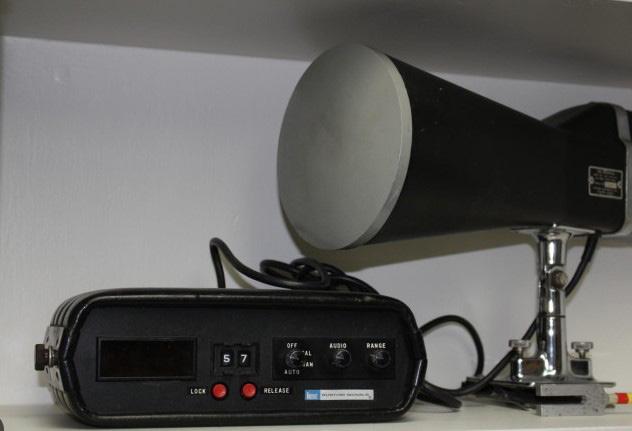
3 minute read
Pipiwharauroa
Chief Ombudsman visits flood affected areas
The Chief Ombudsman, Peter Boshier, recently visited Tairāwhiti, Wairoa, Napier and Hastings to see first-hand the devastation caused by Cyclone Gabrielle. He and his team met with Iwi, District and Regional Councils, local Citizens Advice Bureaus, and Community Law Centres. Gisborne is Peter’s turangawawae. He says he has benefited greatly from being onthe-ground and witnessing first hand, the storm devastation that is still very evident in the regions. “I came here to offer people the right to be heard and I am getting a true feel of the issues and concerns of those communities as they start the road to recovery.”
Advertisement

Mr Boshier says his job as Chief Ombudsman is to keep a watch over decisions and actions made by both central government and councils. “My primary role is to investigate complaints against a company or organisation, including councils, government departments or ministries. “Anyone can make a complaint to the Chief Ombudsman. Our service is free and available to everyone. “In any natural disaster, both central and local government need to make a series of fast decisions to respond to the immediate crisis and to help communities recover. “As communities move from the immediate emergency response to the recovery phase, people are likely to have questions about these actions and decisions. “They may have questions about flood protection measures, for example, or the civil defence payments made available to people affected by Cyclone Gabrielle or the farmer and grower recovery grants scheme. “I know from past experience that the number of complaints my office receives goes up in the months after civil defence emergencies.”
Mr Boshier says one of his most important tasks is to make sure government and councils are responding to requests for official information according to the law.
“People need to feel confident and reassured about the decisions being made that affect them. This is especially important during a crisis and for people dealing with complex issues or living in remote areas.”
We asked the Ombudsman how they can help, here’s what they said:
How can the Ombudsman help you?
The Ombudsman service is free and available to everyone. Everyone has the right to be treated fairly by the public sector agencies they deal with. These agencies include:
• government departments and ministries
• city, district, and regional councils
• state-owned enterprises and crown entities
• universities, polytechnics, and wānanga
• school boards
• Oranga Tamariki and any publicly funded care or custody providers for children and young people.
What the Ombudsman can do for you
If you think you have been treated unfairly by a government agency, as in the bullet points above, you can complain to the Ombudsman. The Ombudsman has wide powers to resolve and investigate complaints. The Ombudsman considers whether an agency’s decisions or actions were unreasonable, unfair, or wrong. If they were, the Ombudsman will say so and ask that agency to put it right. Alternatively, the Ombudsman may agree with the steps the agency has taken and will explain why. The Ombudsman is impartial and independent and will give your complaint careful and fair consideration. The Ombudsman will not usually investigate complaints if there is another alternative solution prior to seeking his help, such as a right of review or appeal of the original decision. The Ombudsman also can’t investigate court decisions.
How to make a complaint
1. First, try to resolve the issue with the agency as bullet pointed above. Many agencies have a complaints process. If they don’t, write to the head of the agency, such as the chief executive or chairperson. The Ombudsman may decide not to consider your complaint unless you’ve done this.
2. You can make a complaint to the Ombudsman using the online form ombudsman.parliament. nz/get-help-public or you can email or post your complaint. Call if you want to talk the matter through. We can answer any questions you have to help you make your complaint. Don’t delay. It may be hard for the Ombudsman to consider something that happened more than 12 months ago.
Complaining for someone else
Whānau, a support person or friend can make a complaint for someone else. If you want someone to make a complaint for you – or you want to represent someone – you will need to arrange permission. See the Ombudsman New Zealand website for help on how to do this.
What happens when you make a complaint? After you’ve sent your complaint to the Ombudsman you’ll be advised when it has been received. The Ombudsman will first decide whether or not your complaint can be considered. If it can’t be, you’ll be told why and directed to other options or agencies who can help. If it’s a matter the Ombudsman can deal with, the Ombudsman’s staff may be able to resolve your complaint by talking to you and the agency you have complained about.
An investigation may not be necessary. When an investigation proceeds, the Ombudsman will seek all relevant information. You’ll be kept informed throughout the complainthandling process. When the investigation ends, the Ombudsman can form an opinion on whether the agency acted unreasonably or unfairly.
Contact the Ombudsman Whakapā Kaitiaki Mana Tangata Office of the Ombudsman Tari o te Kaitiaki Mana Tangata Monday to Friday, 8.30am to 5.00pm Freephone 0800 802 602
Email info@ombudsman.parliament.nz
Website: www.ombudsman.parliament.nz PO Box 10152, Wellington 6143
Additional languages and formats are available on request. Use NZ Relay https:// www.nzrelay.co.nz/index to contact the Ombudsman if you are deaf, hard of hearing or have a speech impairment.










